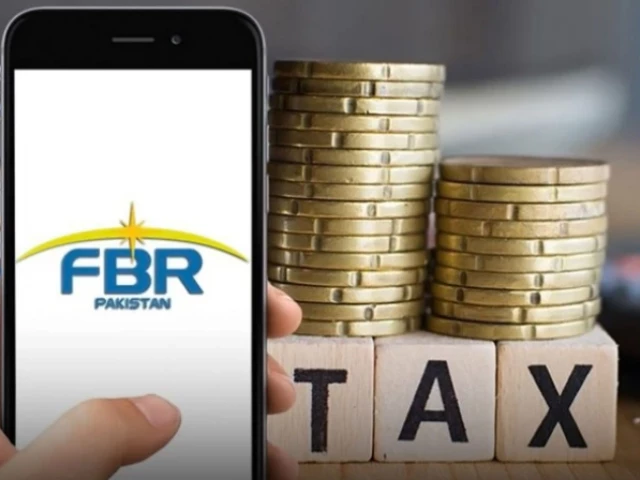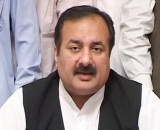'Another tough year as FBR targets existing taxpayers'
Business leaders warn narrow tax base, high energy costs, and IMF-driven revenue targets threaten industrial survival

The Senior Executive Committee Member of the Lahore Chamber of Commerce and Industry (LCCI), Ali Imran Asif, has warned that Pakistan's economy is heading into another testing year, with fiscal year 2025-26 expected to be full of serious challenges.
He pointed out that the Federal Board of Revenue's (FBR) sharp rise in revenue collection, while positive on paper, is largely driven by excessive taxation on existing taxpayers rather than expanding the tax net. Combined with rising government expenditures, this could make it difficult to achieve the modest budget deficit target of 3.9% of GDP set for the year.
This fiscal goal will again remain a key focus of the International Monetary Fund (IMF) programme, which is closely monitoring Pakistan's financial discipline. Asif stressed that despite a population of 250 million and nuclear capability, Pakistan is not progressing at the pace needed for meaningful growth.
"We are moving in the right direction in certain areas, but the speed is far from enough. Until all sectors contributing to the economy move in unison and with urgency, sustainable development will remain out of reach," he said. He called for a more balanced approach, ensuring the revenue burden does not fall disproportionately on documented sectors while vast parts of the economy remain untaxed.
Other industry leaders share the concern. Muhammad Riaz, from the export sector, said the FBR's record collections come from a shrinking industrial base. "Factories are closing or running at half capacity because costs have gone beyond reason. Electricity tariffs are at record highs, gas supply is unreliable, and the rupee's volatility makes importing raw materials unpredictable. On top of this, aggressive tax demands are breaking the back of industry," he said.
According to the Pakistan Bureau of Statistics, last fiscal year's exports stood at $32 billion, which is far below potential. Bangladesh, with a smaller population, exported goods worth over $48 billion, benefiting from competitive manufacturing costs and business-friendly tax policies. Economists link Pakistan's weaker performance to high production costs and an unbalanced tax regime.
"When you have a tax system that collects more from those already in the net and fails to document the massive informal economy, you create an uneven playing field," said Ahmad Raza, an international trader. "This discourages investment and keeps Pakistan out of the race in global markets."
Business owners suggest broadening the tax base by bringing untaxed segments, such as wholesale markets, real estate investors, and parts of the services sector, into the system. These areas operate largely in cash and outside formal banking. Proper documentation could generate significant revenue without strangling industries.
Industry representatives also urge cutting unnecessary expenditures. Large amounts of the budget, they argue, are consumed by administrative costs, loss-making state-owned enterprises, and politically driven projects that do not aid long-term stability.
"The government must show it is willing to share the burden of austerity instead of placing it entirely on taxpayers and businesses," said Ahmed Hassan from Lahore's auto parts sector. The business community believes that broadening the tax net and using modern technology to identify untaxed income streams could create a fairer system and restore trust. But many expect fiscal year 2025-26 to bring more of the same: a narrow tax base, reliance on indirect taxes that hurt the public, and an FBR focused more on IMF benchmarks than on a progressive, equitable taxation system.




















COMMENTS (2)
Comments are moderated and generally will be posted if they are on-topic and not abusive.
For more information, please see our Comments FAQ